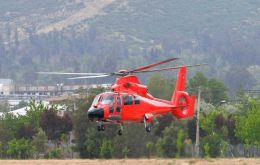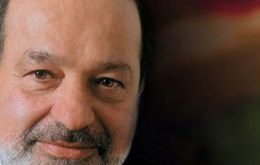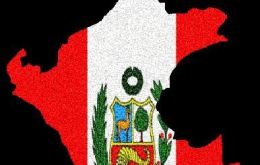MercoPress. South Atlantic News Agency
Latin America
-
Thursday, September 11th 2008 - 21:00 UTC
Kissinger efforts to prevent Allende taking office in 1970

On the eve of the thirty-fifth anniversary of the military coup in Chile, (September 11, 1973) the National Security Archive based in Washington published for the first time formerly secret transcripts of Henry Kissinger's telephone conversations that set in motion a massive US effort to overthrow the newly-elected socialist government of Salvador Allende.
-
Thursday, September 11th 2008 - 21:00 UTC
Betancourt back in the hit list of FARC terrorist group

Former Colombian presidential candidate Ingrid Betancourt and 14 other hostages rescued from the Colombian group FARC last July have again been declared “military targets” by the guerrilla group, claimed Ms Betancourt in New York.
-
Thursday, September 11th 2008 - 21:00 UTC
Helicopter sales soar with mining industry in Chile

Helicopter sales in Chile are going up, up, up. Due to the dramatic growth of the mining and energy sectors, the country has tripled its sales of the aircrafts in the past three years. In 2005, the main provider of helicopters in the country sold only six units, while this year they have already sold 22.
-
Thursday, September 11th 2008 - 21:00 UTC
Mexican billionaire has 6.4% stake in the New York Times

Mexican billionaire Carlos Slim has bought a 6.4% stake in publisher of the New York Times, according to a US regulatory filing.
-
Thursday, September 11th 2008 - 21:00 UTC
Peru tries to cool fastest growing regional economy

The Peruvian Central Bank raised on Thursday its benchmark interest rate to 6.5% from 6.25%, the latest of several measures to curb inflation. The announcement followed a release from the Ministry of Economy and Finance saying the economy had expanded in July at an estimated 8.9% boosted y by domestic demand and construction industry.
-
Wednesday, September 10th 2008 - 21:00 UTC
Cristina Kirchner and Chavez named in Miami trial

The names of Argentina and Venezuela presidents Cristina Fernandez de Kirchner and Hugo Chavez openly emerged in the first hearings of a trial in Miami involving an international cash scandal last year, followed by illegal foreign agents threatening to silence the alleged couriers in United States.
-
Wednesday, September 10th 2008 - 21:00 UTC
Russian bombers land in Venezuela for exercise

Two Russian strategic bombers landed in Venezuela on Wednesday as part of military exercises, an unprecedented deployment to the territory of a new ally at a time of increasingly tense relations with United States
-
Tuesday, September 9th 2008 - 21:00 UTC
Oil drops to 100 USD; Saudis say market “well balanced”

Crude oil fell to a five-month low in New York and Brent oil in London dropped below 100 US dollars a barrel as traders remained confident that the OPEC meeting in Vienna would not decide to reduce production.
-
Monday, September 8th 2008 - 21:00 UTC
Russian sea and air power temporarily based in Venezuela

Russia plans to temporarily station a nuclear-powered missile cruiser and anti-submarine aircraft in Venezuela, foreign ministry spokesman Andrei Nesterenko said Monday in Moscow.
-
Monday, September 8th 2008 - 21:00 UTC
NGO highlight Chilean salmon industry labor problems
Influential NGOs Oxfam Chile and Fundación Terram began the second phase of their “Not Afraid To Go Against The Current” campaign, an effort originally launched in January to highlight questionable labor and environmental practices within Chile's farmed salmon and trout industry.
